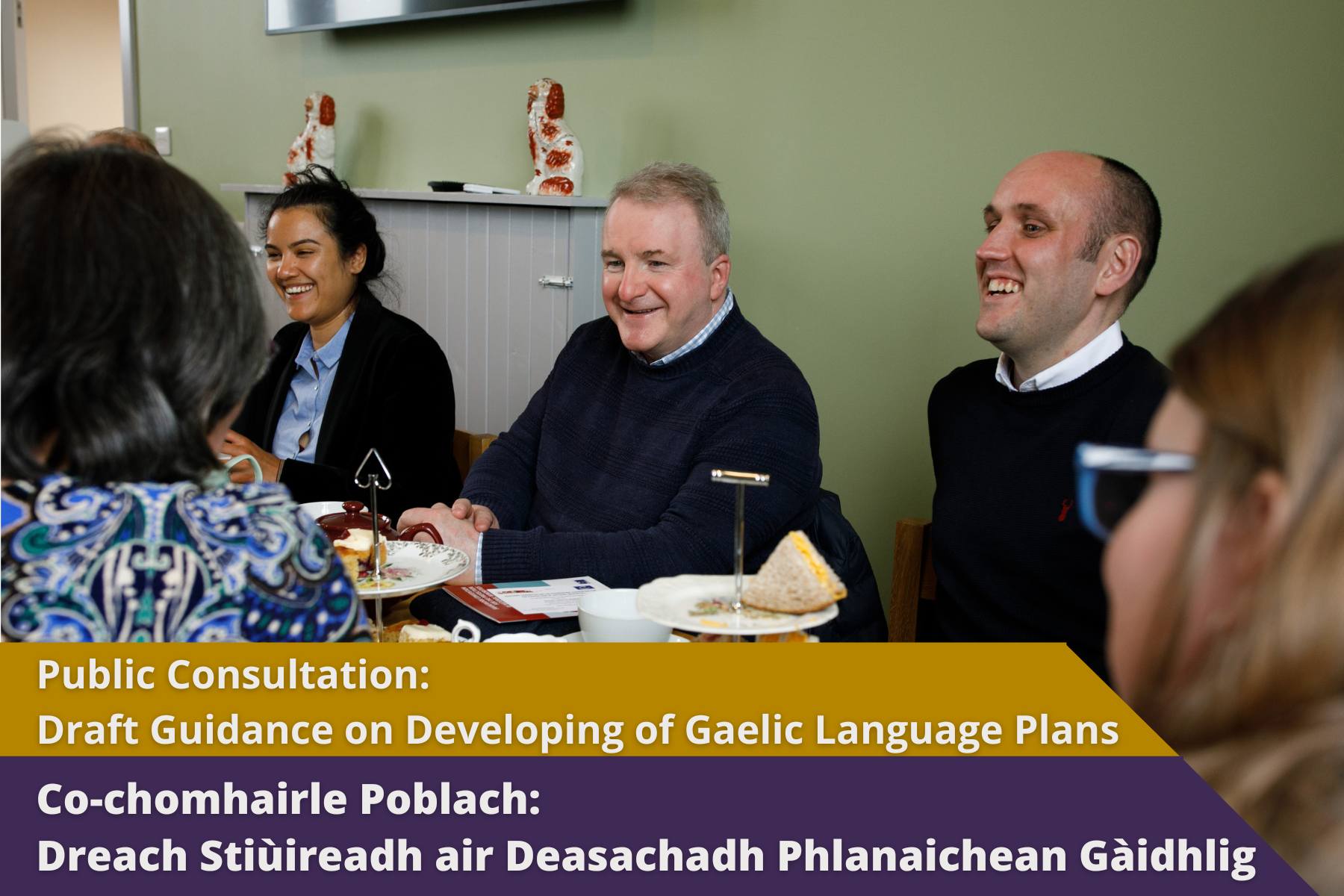Bòrd na Gàidhlig have developed a new draft guidance for the preparation of Gaelic Language Plans and we are seeking feedback on this draft before it is officially published and adopted.
This draft guidance has been developed under section 8 of the Gaelic Language (Scotland) Act 2005 (“the 2005 Act”) and supersedes the original guidance that was first published in 2007.
We have developed a survey to gather views on the draft guidance, which can be accessed at the bottom of this page.
The 2005 Act requires that the consultation be open for not less than 3 months and for that reason, will officially run from Thursday 10th August 2023 until 5pm Friday 10th November 2023.
Once the feedback has been collated and views taken into account, we will finalise the draft guidance document which will then be submitted to Scottish Ministers for their approval.
Once the guidance is approved, Bòrd na Gàidhlig will publish the new guidance document.
We would like to thank you in advance for your participation in this consultation and for helping us develop a document that will play a crucial part in fulfilling the aim of the National Gaelic Language Plan 2018-23 – that Gaelic is used more often, by more people and in a wider range of situations – for many years to come.
You can read the draft guidance here.
This consultation has now closed.










